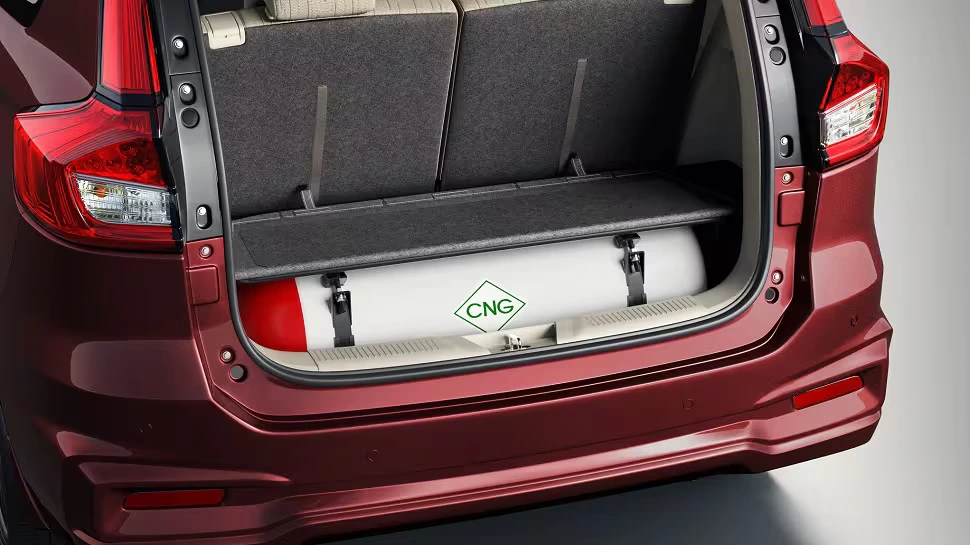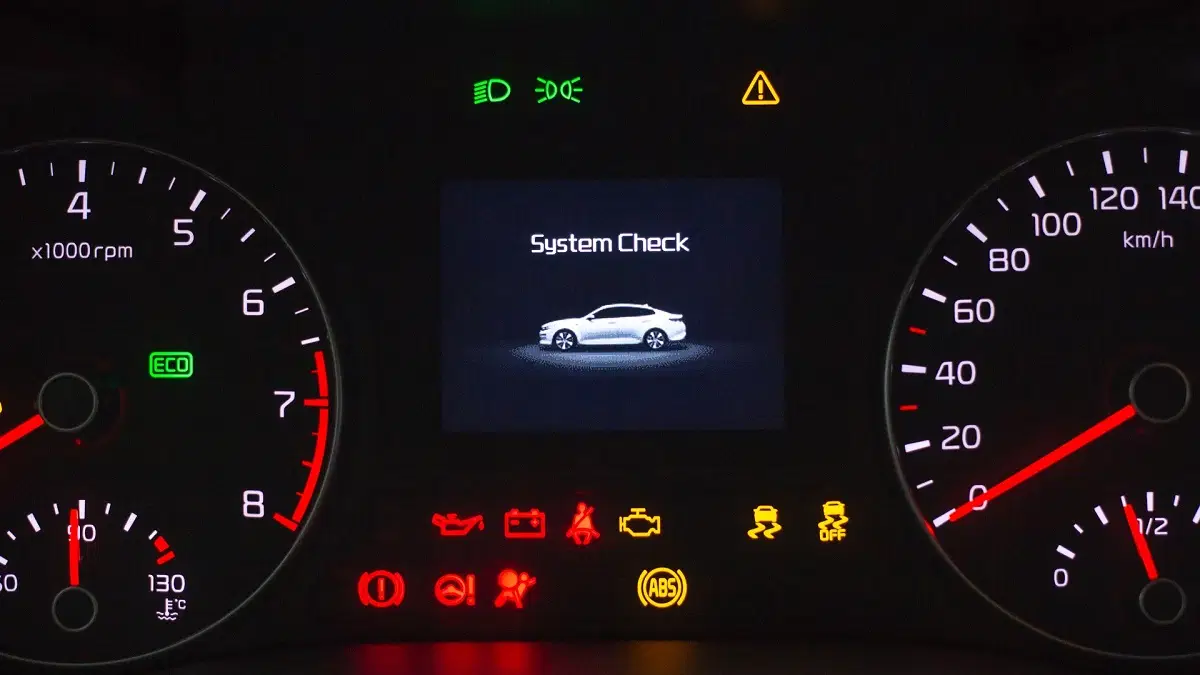
Table of Content
▼- Myth 1: CNG Cars Are Unsafe
- The Reality:
- Myth 2: CNG Cars Are Limited in Range
- The Reality:
- Myth 3: CNG Cars Are Costly to Maintain
- The Reality:
- Myth 4: CNG Cars Have Poor Performance
- The Reality:
- Myth 5: CNG Cars Aren't Environmentally Friendly
- The Reality:
- Comparative Overview: Factory-Fitted vs. Aftermarket CNG Kits
- Factory-Fitted CNG Kits:
- Aftermarket CNG Kits:
- Conclusion
Compressed Natural Gas (CNG) cars have garnered widespread attention as an environmentally friendly and cost-saving option compared to conventional petrol and diesel vehicles. With fuel prices on the rise and environmental awareness growing, CNG cars have become a favorite among Indian consumers. However, despite their popularity, several myths and misunderstandings continue to surround CNG cars. In this article, we’ll address some of the most common myths and provide clarity for prospective buyers, helping them make informed decisions.
Myth 1: CNG Cars Are Unsafe
One of the most common street rumors about CNG cars is that they are unsafe, particularly in the event of an accident or refueling. People often believe CNG cars will explode or catch fire due to the highly flammable nature of the gas.
The Reality:
CNG, in fact, is much safer than petrol or diesel as a fuel. It requires a higher ignition temperature of around 700°C, while petrol can ignite at 455°C, making it more prone to fire under extreme conditions. Furthermore, factory-fitted CNG systems are tested to stringent standards and come equipped with robust safety features.
For example, Maruti Suzuki's S-CNG vehicles are designed with advanced safety mechanisms such as leak-proof systems, micro switches to prevent refueling while the engine is running, and durable, crash-tested cylinders. These features ensure that CNG cars in India meet the highest safety standards. CNG cylinders are also made from materials that can withstand high pressures and impacts, ensuring that modern CNG vehicles are just as safe—if not safer—than their petrol or diesel counterparts.
Also Read: Learn About Car Insurance Claims in Various Situations
Myth 2: CNG Cars Are Limited in Range
A common myth is that CNG vehicles have a limited range and are less convenient for long-distance travel.
The Reality:
While CNG does have a lower energy density compared to diesel or petrol, most CNG cars today come equipped with dual-fuel systems. This allows the driver to use either CNG, petrol, or a combination of both, significantly enhancing the vehicle's range.
For instance, most CNG vehicles can travel 250-300 kilometers on CNG alone. When the petrol tank is used in conjunction, the range increases substantially. Manufacturers like Maruti Suzuki ensure that their S-CNG models are fuel-efficient, offering great mileage for both daily commutes and long-distance road trips. This makes CNG cars in India a practical and efficient choice for a variety of driving needs.
Myth 3: CNG Cars Are Costly to Maintain
Many people assume that CNG cars are more expensive to maintain than their petrol or diesel counterparts.
The Reality:
CNG is a cleaner fuel that produces less carbon buildup in the engine, which leads to reduced wear and tear on engine components. As a result, CNG vehicles tend to experience fewer mechanical issues and may incur lower maintenance costs over time.
In fact, CNG cars are designed to outlast both petrol and diesel engines. Maruti Suzuki’s S-CNG vehicles, for example, are built with components specifically engineered to handle the unique characteristics of CNG, which further reduces the chances of breakdowns and increases the vehicle's longevity. This results in fewer repairs and a more cost-effective ownership experience.
Myth 4: CNG Cars Have Poor Performance
There is a common misconception that CNG cars don't offer the same performance as petrol or diesel vehicles. People often believe that CNG-powered vehicles are sluggish and lack power.
The Reality:
This myth stems from outdated information about early CNG conversion kits that caused performance issues. However, modern CNG systems are engineered to provide optimal performance.
For example, Maruti Suzuki’s S-CNG vehicles are designed to maintain power and torque while offering the smooth driving experience expected from petrol cars. These factory-fitted CNG kits are tuned for high performance, ensuring that drivers don't have to sacrifice power for fuel efficiency. Additionally, CNG vehicles deliver excellent fuel efficiency, making them an attractive option for those looking to save on fuel costs.
Myth 5: CNG Cars Aren't Environmentally Friendly
Some individuals believe that CNG vehicles are not as environmentally friendly as they are often portrayed, and that they are less green than electric vehicles (EVs).
The Reality:
CNG is one of the cleanest-burning fossil fuels. It produces fewer greenhouse gases, less carbon dioxide (CO2), and lower amounts of harmful pollutants like nitrogen oxides (NOx) and particulate matter compared to petrol and diesel. This makes CNG cars a great option for reducing air pollution and lowering carbon footprints.
While electric vehicles (EVs) are cleaner in terms of emissions, CNG remains a more sustainable alternative in India, especially in regions where EV infrastructure is still developing. CNG cars are a practical solution to environmental challenges, contributing to cleaner air and reduced dependence on fossil fuels.
Comparative Overview: Factory-Fitted vs. Aftermarket CNG Kits
When considering CNG cars in India, it's important to distinguish between factory-fitted and aftermarket CNG kits. Here's a comparison:
|
Feature |
Factory-Fitted CNG Kits |
Aftermarket CNG Kits |
|
Safety Standards |
High |
Variable |
|
Warranty Coverage |
Included |
Often Voided |
|
Integration with Vehicle |
Seamless |
May Be Compromised |
|
Emissions Compliance |
Certified |
Highly Uncertain |
|
Resale Value |
Higher |
Potentially Lower |
Factory-Fitted CNG Kits:
- Installed by the vehicle manufacturer.
- Comply with strict safety and emission regulations.
- Offer warranty coverage and seamless integration with the vehicle’s system.
- Retain higher resale value due to certification and compliance.
Aftermarket CNG Kits:
- Installed post-purchase, typically by third-party providers.
- May not adhere to the same safety or emission standards.
- Can affect vehicle performance and may void the manufacturer's warranty.
- Resale value may be lower due to concerns over installation quality and regulatory compliance.
Conclusion
CNG cars in India have made significant advancements in safety, performance, and environmental benefits, dispelling many of the myths that once surrounded them. Modern CNG vehicles are just as safe, reliable, and efficient as their petrol or diesel counterparts, offering the added advantage of lower operating costs and reduced environmental impact.
By debunking these common myths, prospective buyers can better understand the benefits of CNG cars. Whether you’re looking to save on fuel costs or reduce your carbon footprint, CNG cars offer a reasonable, sustainable, and environmentally friendly solution for today’s eco-conscious drivers. If you're in India and considering a CNG-powered vehicle, now is the perfect time to explore the advantages they bring to the table.
Also Read: Reasons for Engine Overheating in Summer: Car Owners' Full Guide
Follow Autonexa Whatsapp Channel to stay updated with the latest happenings in the automobile industry.
Karan Bhatia
Karan Bhatia is an automobile expert and reviewer with 8+ years of experience test-driving cars, bikes, and EVs. He provides honest, detailed, and practical reviews that highlight performance, design, safety, and value for money. His expert insights help readers make confident choices when buying their next vehicle.


_1745238395.webp)
_1771411501.webp)
_1770372474.webp)



